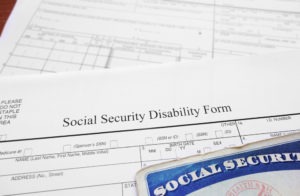
If you need Social Security disability benefits and you live in Huntington, West Virginia, a lawyer from our firm can seek benefits from the Social Security Administration (SSA).
The SSA denies the majority of first-time applications. By having our team review your application and explain your options, you can build a solid case that merits approval. We can also help you file an appeal if you were denied benefits.
What are Social Security Disability Benefits?
Social Security disability benefits include two programs: Social Security Disability Insurance (SSDI) and Supplemental Security Income (SSI) benefits. Although the SSA oversees both programs, there are different rules to qualify for SSDI and SSI. Qualifying for one program does not guarantee that you will also be eligible for the other one.
Who is Eligible for SSDI Benefits?
The SSDI program gets its funding from withdrawing Social Security taxes from workers’ paychecks. To qualify for SSDI benefits, the SSA says that you must have worked in jobs that participated in the Social Security program.
You Need a Certain Amount of “Work Credits” to Qualify
You must have enough “work credits” based on the age at which you became disabled. People can earn up to four work credits a year. You generally need 40 credits to qualify, but again, this depends on the age you became disabled, per the SSA.
You Can’t Make Over a Certain Amount of Income to Remain Eligible
In addition to work credits, your income must not exceed the SSDI earnings limit. The SSA uses the “substantial gainful activity” (SGA) dollar amount as the SSDI income maximum.
For 2021, the SGA is $2,190 a month for statutorily blind individuals and $1,310 for non-blind individuals. This number can change every year. If you can make more money than the SGA limit, the SSA will decide that you are not eligible for SSDI benefits.
Your Condition Must Impact You for at Least a Year
Your inability to work has to be the result of a severe medical condition that has already lasted or is expected to last for at least 12 months. You could also qualify if your condition is expected to result in your passing.
You Must Have a Qualifying Impairment
Finally, your mental or physical disability must meet the “Blue Book’s” requirements. The Blue Book contains technical medical criteria like lab test results and other objective findings that prove how debilitating a person’s illness or injury is.
How Can You Qualify for SSI Benefits?
A claimant must have a qualifying medical condition, just as if they were applying for SSDI benefits. The primary differences in eligibility requirements for SSI include:
- The SSA does not require that you paid any Social Security taxes to get SSI benefits. The SSI program gets its funding from the government’s general revenues, so this program does not require work credits.
- The SSI program requires that applicants have little or no income.
- An individual must also have nominal financial resources to receive SSI benefits, per the SSA. Although the SSA does not count every asset toward the limit, an individual cannot have more than $2,000 in countable resources. A couple cannot have more than $3,000 in countable assets.
The SSDI program does not have a financial resources limitation.
How Does the SSA Evaluate a Person’s Disability?
The Blue Book covers hundreds of diseases and medical conditions in every part and system of the human body, including neurological disorders, mental disorders, and many different kinds of cancer. Merely reporting one’s symptoms is not sufficient to qualify as disabled for the purposes of SSDI or SSI benefits.
The SSA requires objective medical evidence from a medical source that they consider acceptable. A claimant’s supporting information must assert that they have an impairment that prevents them from working. The applicant can submit their medical records or give the SSA permission to obtain them.
The SSA will Evaluate the Information Relevant to Your Circumstances
After the SSA is convinced that the applicant has an impairment, the evaluator will review both medical and non-medical sources to learn more about their ability to work.
Non-medical sources can include:
- The applicant
- Friends, relatives, and neighbors of the applicant
- Employers
- Caregivers
- Other appropriate non-medical sources
If the applicant’s medical records do not provide enough information to the SSA, the organization might ask the claimant’s existing health care providers for more information or arrange for a consultative exam.
Does the SSA Provide Emergency Benefits forSome Illnesses?
Yes, the SSA has two “fast-track” procedures, Quick Disability Determinations (QDD) and Compassionate Allowances (CAL) initiatives. These processes expedite the review of applications from claimants with some of the most severe disabilities.
What to Do if the SSA Rejects Your Application for Disability Benefits
You cannot delay if you disagree with the SSA’s decision about your application for SSDI or SSI benefits. If you wait too long, you will miss the short deadline and lose the right to appeal. You will want to contact a Huntington Social Security Disability Lawyer at Underwood Law Office immediately if the SSA denies your claim or offers less money than you think you deserve.
Since the SSA rejects the vast majority of initial applications, most people who eventually receive a monthly benefits check had to fight through at least one appeal level to win. You have to go through all of the stages of review with the SSA before you can file a lawsuit in federal court seeking benefits.
Work with a Huntington Social Security Disability Attorney on Your Claim Today
The SSA does not force you to work with an attorney on your claim or appeal, but it can be a smart decision to do so. When a person has a medical condition so severe that it prevents him from working, he should not have to fight with bureaucrats to get the help he needs.
At Underwood Law Office, we help disabled people pursue the benefits they deserve. You can call us today to get started.
Call or text (972) 535-6377 or complete a Free Case Evaluation form



